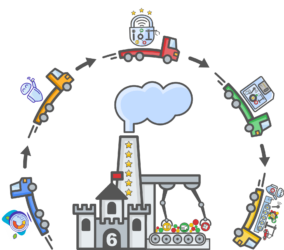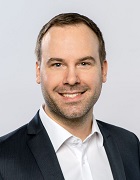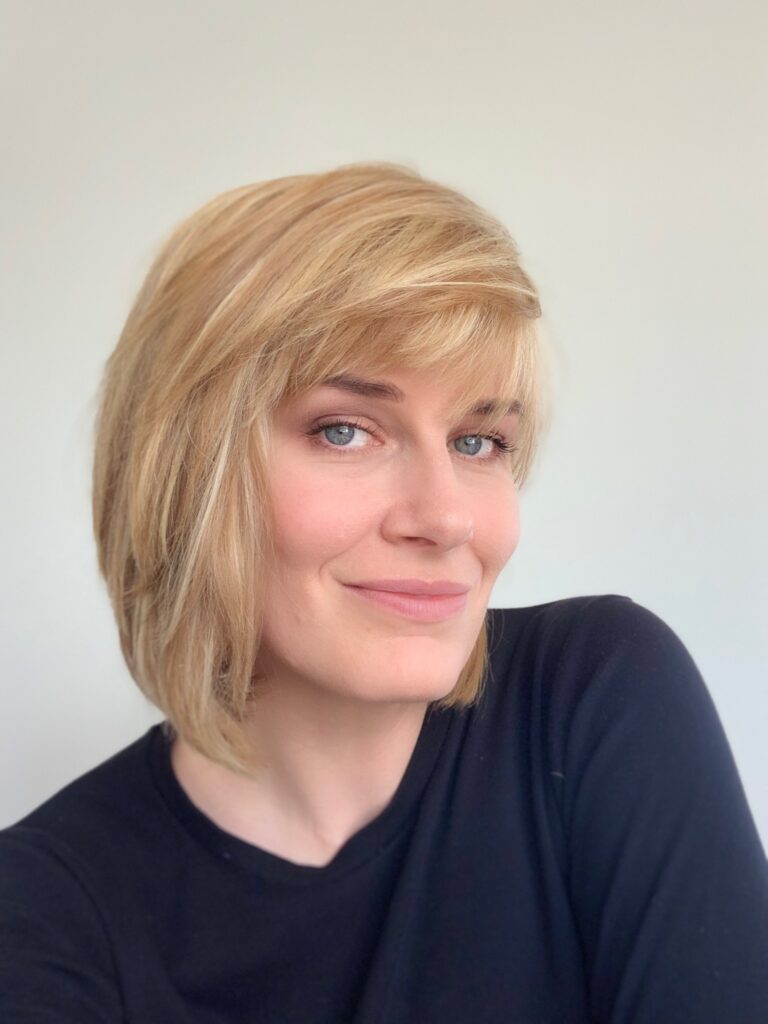The program provides a unique mix of networking events with keynotes, hands-on sessions, and social events!
Monday
Morning: Setup / Check-In
14h00 [K] Welcome and Opening, Prof. Dr. Marc-Oliver Pahl (IMT Atlantique) / Prof. Dr. Sebastian Steinhorst (TUM))
Here we will present you what to expect during the week and give you some interesting insides.
14h30 [K] “Secure Smart Regions”, Prof. Dr. Marc-Oliver Pahl (IMT Atlantique) / Prof. Dr. Sebastian Steinhorst (TUM))
As our cities, towns, and rural landscapes become increasingly saturated with connected systems—from traffic control and energy grids to healthcare, governance, and public safety—we are witnessing the rapid emergence of Smart Regions: large-scale, cyber-physical ecosystems built on layers of sensing, automation, communication, and data-driven intelligence.
While these smart regions promise sustainability, efficiency, and improved quality of life, they also introduce complex vulnerabilities. A disruption in one subsystem—be it transportation, water, or emergency response—can cascade across sectors, magnifying risks and consequences. Security, therefore, is not just a technical challenge but a societal imperative.
This keynote sets the stage for the 2025 edition of the Future-IoT Summer School by exploring the multifaceted nature of “security” in smart regions—spanning technical, organizational, societal, and geopolitical dimensions. We will unpack the architecture of smart regions as a mirror of today’s grand computing challenges:
- Cyber-physical integration,
- Real-time guarantees,
- Critical infrastructure protection,
- Scalability and interoperability,
- Privacy and trust,
- Resilience under attack and failure.
Through examples, ongoing research, and policy considerations, the talk will offer a holistic framework to understand what it means to build secure-by-design smart regions—and how young researchers can shape their evolution. It will also introduce the week’s challenge-driven format, connecting participants to the mission: to rethink our interconnected environments not just as systems of efficiency, but as systems of care, trust, and societal impact.
15h30 [P] PhD Madness (2 min per student/poster)
In this fast-paced, high-energy session, each participant gets 2 minutes and 1 slide to pitch their research to the entire summer school community. Whether you’re deep into your PhD or just getting started, this is your chance to showcase your work, spark collaborations, and get feedback from peers, professors, and industry experts. It’s rapid, fun, and a great way to kick off a week of exchange and inspiration!
17h00 Presentation of the Challenges for the week
The heart of the Future-IoT Summer School is its week-long hackathon, where interdisciplinary teams work together to tackle real-world problems at the intersection of technology, infrastructure, and society.
In this session, we’ll unveil the set of challenges that participants will address throughout the week—each reflecting a key issue in the development of secure, resilient, and intelligent smart regions. The challenges are grounded in current research and practice, ranging from critical infrastructure security to real-time data coordination, cyber-physical integration, and trustworthy automation.
The session will outline the context, objectives, and constraints of each challenge, along with expectations for the final pitch to an international expert jury. This is where innovation begins—through curiosity, collaboration, and the drive to shape the future of our hyperconnected environments.
20h00 Joint Dinner
Each evening of the Summer School concludes with a Joint Dinner—an informal yet invaluable opportunity to connect beyond the lecture hall and workshop space. These dinners bring together participants, speakers, mentors, and organizers around shared tables and great food, creating space for meaningful conversations, spontaneous ideas, and lasting collaborations.
Whether you’re continuing a technical discussion, seeking feedback on your project, or just getting to know fellow participants from around the world, the joint dinners offer the perfect setting to build your network—and your community—in a relaxed and inspiring atmosphere.
Tuesday
09h00 [K] T.B.C. (working title) Crises management in the digital era
From natural disasters and pandemics to cyberattacks and infrastructure failures, crises in the 21st century are increasingly complex—and increasingly digital. In hyperconnected environments, real-time situational awareness, data-driven decision-making, and resilient communication infrastructures become critical lifelines.
This session explores how digital technologies are reshaping the way we anticipate, respond to, and recover from crises. We will examine the role of smart sensors, IoT platforms, AI, and secure communication systems in enabling coordinated responses across multiple stakeholders—from emergency services and municipalities to infrastructure operators and the public.
Participants will gain insight into the challenges of interoperability, trust, data governance, and system robustness, and how crisis management serves as a stress test for the digital systems that increasingly underpin our daily lives. The session will highlight how designing for crisis-readiness is not a niche concern—but a core requirement for any secure smart region.
10h00 [H] Working on Challenges
In these hands-on sessions, participants dive deep into the week’s challenges in interdisciplinary teams, applying their skills to develop innovative solutions to real-world problems in smart, secure, and connected regions. Supported by mentors and experts, these sessions are where ideas take shape—through collaboration, experimentation, and critical thinking. This is the core of the Summer School’s hackathon spirit: learn by building, solve by doing.
12h00 Lunch
14h00 [K] T.B.C. (working title) Next Generation Interfaces to Big Data
As data volumes grow exponentially, traditional methods of interacting with complex datasets are reaching their limits. This keynote explores how Extended Reality (XR)—encompassing Virtual, Augmented, and Mixed Reality—can revolutionize the way we visualize, explore, and make sense of big data.
By moving beyond screens and into spatial, interactive environments, XR enables immersive analytics: data exploration that is more intuitive, collaborative, and multi-dimensional. Participants will discover how XR interfaces can transform everything from urban planning and infrastructure monitoring to crisis response and smart region management—making complex patterns and real-time dynamics not only visible but tangible.
The talk will highlight current research, practical applications, and design challenges in building human-centered, secure, and scalable XR analytics tools—and invite attendees to imagine what the future of data-driven decision-making might look like when we step into the data itself.
15h00 [P] Poster Session
The Poster Session is a key moment for participants to present their PhD research visually and interactively. Each student will showcase their work on a dedicated poster, inviting peers, mentors, and experts to explore, question, and connect around their topic.
More than a one-time event, the posters will remain displayed throughout the entire Summer School, creating a living exhibition of current research and offering an ongoing opportunity for spontaneous discussions, collaborations, and feedback. Whether you’re presenting or simply curious, this session opens the door to deeper understanding, interdisciplinary insight, and lasting academic connections.
16h00 [H] Working on Challenges / Hackathon
19h00 [M] Hacknight with Pizza (until 23h)
As the sun sets, the ideas heat up! Our Hacknight sessions provide a relaxed, creative, and social environment where teams can push their challenge projects forward, experiment with bold ideas, and enjoy the unique energy of late-night collaboration.
With plenty of pizza to fuel the mind, participants are encouraged to code, prototype, sketch, or debate—whatever moves their project ahead. Mentors will be available for informal guidance, and the open, low-pressure vibe invites improvisation, iteration, and innovation.
Whether you’re troubleshooting, fine-tuning, or dreaming big, Hacknight is where great ideas often find their spark.
Wednesday
09h00 [K] T.B.C. (working title) Disinformation as new threat to the public
In an age of hyperconnectivity and real-time media, disinformation has become a critical threat—not only to public trust, but to the stability of democratic institutions, emergency response, and societal resilience. The rise of Large Language Models (LLMs) and generative AI tools has drastically lowered the barrier to producing persuasive, personalized, and scalable false content.
This session explores how these technologies are transforming the speed, scale, and sophistication of disinformation attacks. From deepfake videos and fake news to real-time social engineering during crises, generative AI enables highly adaptive and targeted manipulation of public perception—often indistinguishable from authentic sources.
Participants will gain insights into the mechanics of AI-powered disinformation, the vulnerabilities of digital infrastructure and human cognition, and emerging strategies for detection, defense, and digital literacy. The session calls for urgent interdisciplinary collaboration to address this growing challenge at the intersection of technology, security, ethics, and policy.
10h00 [H] Working on Challenges / Hackathon
12h00 Lunch
14h00 [K] T.B.C. (working title) The CyberSecDome EU project securing Smart Regions
As smart regions increasingly rely on interconnected cyber-physical systems, protecting these complex environments from evolving cyber threats is paramount. The CyberSecDome EU project is at the forefront of developing innovative security solutions tailored to the unique challenges of smart regional infrastructures.
This session will introduce the project’s holistic approach to cybersecurity, combining advanced threat detection, real-time monitoring, and resilient architecture design to safeguard critical services such as energy, transportation, and public safety. Participants will learn about the project’s cutting-edge tools, pilot deployments, and collaborative frameworks that bring together academia, industry, and policymakers.
By showcasing how CyberSecDome is enhancing trust and robustness in smart regions, this session highlights the essential role of European cooperation in securing the digital backbone of our communities.
15h00 [H] Working on Challenges / Hackathon
19h00 [M] Makeathon Hacknight with Asian Food (until 23h)
Thursday
09h00 [K] T.B.C. (working title) From Sensors to Clouds – Standardization as key to interoperability
In the complex ecosystems of smart regions, seamless interaction between diverse devices, platforms, and services is essential for effective data integration and system functionality. This session highlights the critical role of standardization in enabling interoperability across the entire IoT value chain—from low-level sensors collecting data at the edge to cloud platforms processing and analyzing information at scale.
We will explore how common protocols, data formats, and communication standards facilitate scalability, reliability, and security in heterogeneous environments. Participants will learn about ongoing efforts and challenges in establishing interoperable frameworks that support multi-vendor, multi-domain collaboration—paving the way for smarter, more connected, and sustainable regions.
By focusing on standardization, this session emphasizes the foundational work required to build trustworthy and future-proof digital infrastructures that can evolve with emerging technologies and use cases.
10h00 [H] Working on Challenges
12h00 Lunch
14h00 [K] T.B.C. (working title) Living with AI – how AI is transforming our society
Artificial Intelligence is no longer a futuristic concept—it is deeply embedded in our daily lives, reshaping how we work, communicate, govern, and solve problems. This session explores the profound societal transformations driven by AI technologies, from automated decision-making and personalized services to smart infrastructure and digital assistants.
We will discuss both the promises and challenges of AI adoption, including ethical considerations, workforce impacts, privacy concerns, and issues of bias and accountability. Participants will gain a nuanced understanding of how AI is influencing social structures, economic models, and cultural norms—and how we can collectively shape its development to foster inclusive, transparent, and human-centered AI ecosystems.
This session invites reflection on the opportunities and responsibilities of living in a world increasingly co-created by humans and intelligent machines.
15h00 [H] Working on Challenges
19h00 [H] Hacknight with Burger (until 23h)
Friday
09h00 [K] T.B.C. (working title) 6G – Public Sensing and Computation Offloading to the Edge
As digital infrastructures evolve toward 6G, the next generation of mobile networks promises more than faster speeds—it introduces a paradigm shift in how we sense, process, and act on data in real time. This session explores the emerging capabilities of 6G-enabled public sensing and computation offloading, particularly within the context of smart regions and hyperconnected environments.
With ultra-low latency, massive device connectivity, and integrated AI, 6G allows vast amounts of data—collected from distributed public sensors—to be processed closer to the source through edge computing. This unlocks new possibilities for responsive urban systems, such as traffic optimization, environmental monitoring, public safety, and augmented reality services.
We will discuss key architectural, security, and interoperability challenges, as well as the societal and ethical implications of pervasive sensing and decision-making at the edge. This session offers a glimpse into how 6G could become the nervous system of future digital societies, enabling real-time intelligence at scale.
10h00 [H] Challenges / Finalizing the presentations
12h00 Lunch
14h00 Presentation of the jury
In this session, the expert jury—comprising professionals from industry, academia, and the public sector—will introduce themselves and outline the evaluation criteria for the Hackathon pitches. As an interdisciplinary panel, the jury brings a broad perspective to assessing the teams’ work, focusing on aspects such as technical innovation, relevance to smart regions, feasibility, societal impact, and presentation quality.
This introduction helps participants understand what defines a strong pitch and how real-world innovation is assessed in competitive environments such as startup funding rounds, grant applications, or public-private partnerships. It also sets the stage for the final presentations and encourages participants to think critically about how they position and communicate their ideas.
14h30 Project pitches in front of the international jury
After an intense week of hands-on collaboration, creativity, and technical problem-solving, student teams will take the stage to present the results of their Hackathon projects. In this final session, each team delivers a startup-style pitch to an expert jury composed of representatives from industry, academia, and civil society.
This is more than just a presentation—it’s a unique opportunity for participants to showcase their ideas, prototypes, and teamwork, and to practice the essential skill of convincing a critical audience. Whether you’re thinking about launching a startup, leading a research proposal, or driving innovation within an organization, the ability to pitch your project clearly and compellingly is invaluable.
The jury will provide constructive feedback and select standout contributions, but every participant will walk away with something more: experience, visibility, and confidence in turning vision into impact.
16h00 Jury discussion
16h30 Closing event with recap of the week and winner coronation ceremony
As an inspiring week of learning, collaboration, and innovation draws to a close, this final session brings everyone together one last time to celebrate achievements, reflect on the journey, and recognize outstanding contributions.
We will look back on the highlights of the week—from insightful keynotes and hands-on hackathon sessions to spontaneous discussions and shared moments beyond the program. The winning team of the Hackathon will be honored in a ceremonial trophy presentation, recognizing their creativity, teamwork, and impactful solution.
All participants will receive their official certificate of participation, including recognition of ECTS credits, marking both their academic and practical engagement.
Beyond the awards and certificates, this moment is about more than completion—it’s about celebrating the connections formed, the ideas sparked, and the memories made. As we say farewell, we do so with new knowledge, new networks, and perhaps even friendships that last far beyond the Summer School.
Additional events to be planned into the agenda
09h00 [K] T.B.C. (working title) Next Generation Governance with Smart Data
The rise of smart regions offers unprecedented opportunities to transform governance through the intelligent use of data. This session explores how smart data—collected from interconnected sensors, IoT devices, and citizen inputs—can enable more responsive, transparent, and efficient decision-making at all levels of public administration.
By leveraging real-time analytics, predictive modeling, and participatory platforms, next-generation governance can improve urban planning, resource allocation, emergency response, and citizen engagement. However, harnessing smart data also raises critical questions around privacy, security, data ownership, and ethical use.
Participants will gain insight into emerging frameworks, technologies, and best practices that balance innovation with trust and accountability, illustrating how data-driven governance can build smarter, safer, and more inclusive communities.
14h00 [S] T.B.C. (working title) Visit of the crisis center of the region Ost Holstein (Heiko Nowak)
19h00 Joint Dinner
10h00 [S] Wattwanderung
15h00 [S] Aquarium / Boat
Color Coding:
[K] Keynote
[P] PhD Networking
[H] challenges
[S] Social Event
Food








